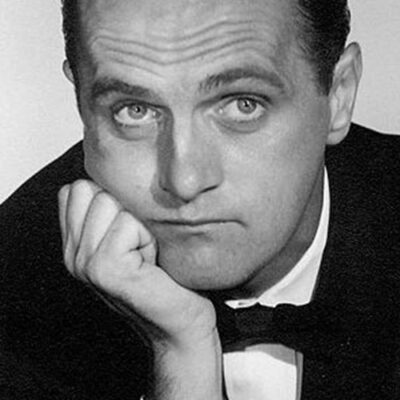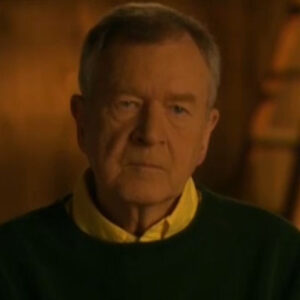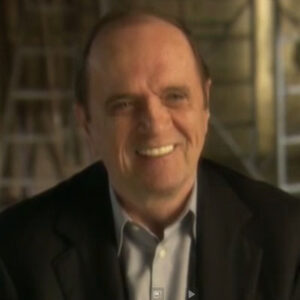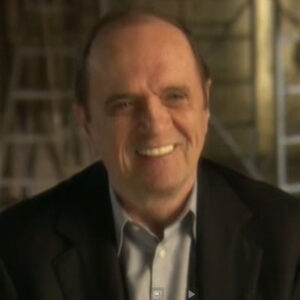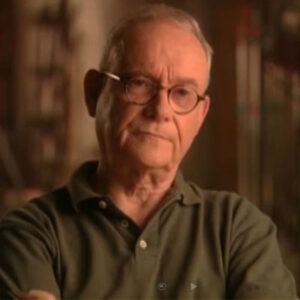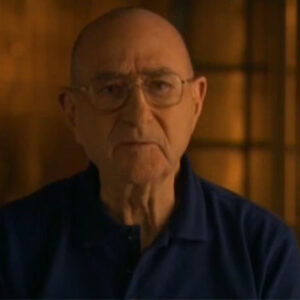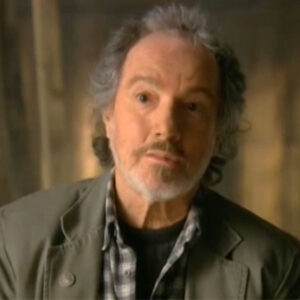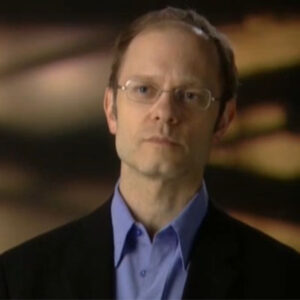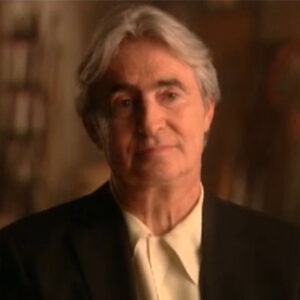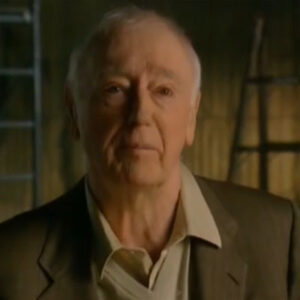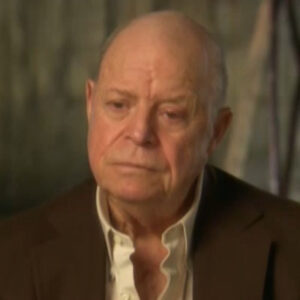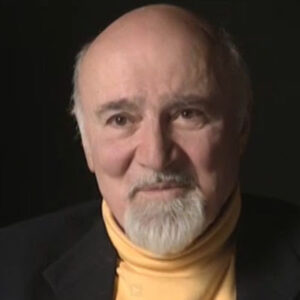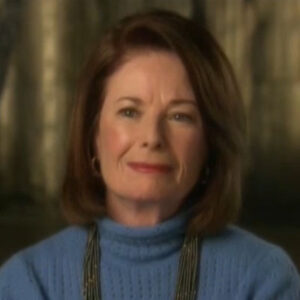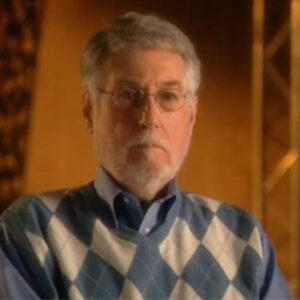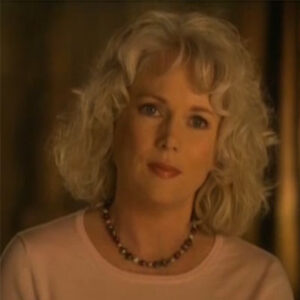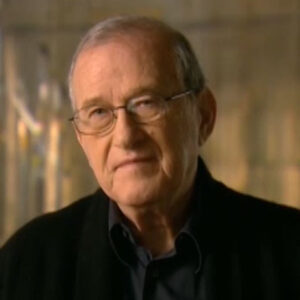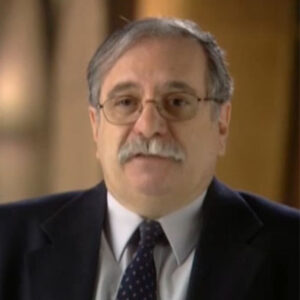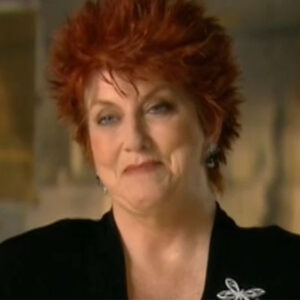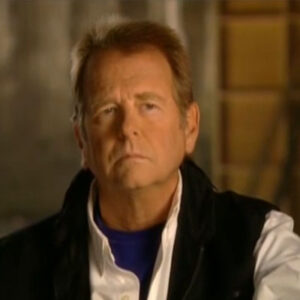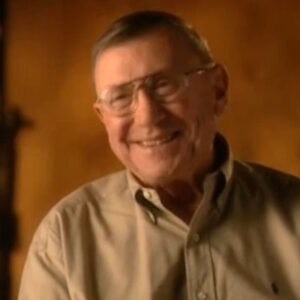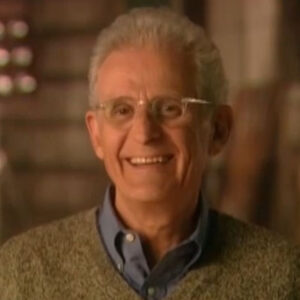Interviewer: What’s worked before you worked hard if you were a fan of your show albums. Just tell me what?
Stephen Grossman: Well, I’ve always been a fan of Bob Newhart, obviously, in a certain beginning with his albums. It’s wonderful. Comedic albums and comedy albums are very popular in the 60s. And his button down mind obviously was it was a great album and was aware of him. And then when he would appear on variety shows, Ed Sullivan, The Tonight Show, Steve Allen Show, we were great fans. And he also performed a great deal in colleges in those days. And yes,.
Interviewer: Wonderful. We have a sound set to be sold. That’s right.
Stephen Grossman: Oh, OK. OK, let’s get. Absolutely. Absolutely. I’ve always been a fan of Bob Newhart, starting earlier with his albums Button Down Mind. Bob Newhart and comedy albums were very popular in those days, and the VanMeter and Bob Newhart and Shelley Berman and its wonderful style of comedy. And also, he did college tours and appeared on what were variety shows in those days, late night shows and Ed Sullivan Show. So we I was in college in the 60s and we were great fans of Bob and I hoped he’d come to Washington to perform. I did not. Actually, I did not. Other than the television. And it’s great fun to have a group together and listen to the albums and enjoy the comedy in a group. And you could hear them and listen to this routines more than once.
Interviewer: It wasn’t like comedy clubs.
Stephen Grossman: Right, breaking into your house. And if you had a party or dinner party, you would often put on a record after dinner or comedy or album, of course, and you could just sit back and enjoy it. And I’ve heard those routines before. But find something new in the each time you listened to.
Interviewer: And did you remember any favorite routines?
Stephen Grossman: I remember the submarine routine a great deal. And Sir Walter Raleigh conveying how he discovered tobacco and the driving school routine and all of which Bob would do later. When we did The Newhart Show before we started taping, Bob would come out and always do about a ten minute routine. And he’d always ask the crew, what do they want to hear? And it was one of the classic routines. And he would do it in front of the audience before we film the show. And it was a way for Bob to sense the audience that night’s audience get a sense of their response, and the crew was just enamored of them. And each time we heard them, whether we heard them over and over again, it was just a joy.
Interviewer: And he would warm up the audience himself?
Stephen Grossman: Yeah. So, yes, absolutely. We had a warm up guy who would present our cast and then Bob and Bob would get the microphone out. In fact, I always handed Bob the microphone, which was kind of a fun thing to do. And then he would introduce the cast and then he would they would all step to the sides of it. And Bob, bador routine for 10 minutes and just engage the audience and engage the crew. And all of us that were there and it was a SOS. It was showtime. And that was that was exciting. Now, let’s say. Yes. It was a little private show with Bob Newhart. Absolutely. Absolutely. And to watch the rest of the cast on the sidelines laugh and just to glow with enjoyment of Bob’s performance at the time, I guess, 20, 20. But they his routines are universal and really timeless because they’re they’re about experiences or historical experiences that we all know have studied or the current experiences of driving teaching a teaching with a driver are universal, universal appeal. And I think every generation will experience some of that. So that’s a universality of his comedy.
Interviewer: How would you describe can you describe his comedic style and his style?
Stephen Grossman: Bob has a wonderful style, a very casual style. It’s a very precise and well crafted style. But obviously, one doesn’t see the craft. One just sees the comedy occurring. And he’s a very he’s a master of timing and he understands words and language. And a change of a word can turn an entire comedic sentence. He’s quite capable of getting a laugh. And then another laugh and topping those two laughs with another laugh in his stammer, in his presentation and something he’s honed to perfection. The audience is never really aware of the craft, the process that’s occurring, just the comedy that they’re responding to. And he does it effortlessly and he just engages the audience and doesn’t separate himself from the audience. You just feel like you’re you’re in there with he’s talking to you.
Interviewer: And you see you talk about his use of words that you obviously would you see that doing Newhart. Would he ever want to just change one word?
Stephen Grossman: Yes, he would. But the writers obviously had a wonderful ability to write for him, to write in his rhythms, to know in their minds ere they could hear Bob saying this dialogue. And certainly if obviously, if he wanted a word change or line change, he would ask for it. But in all the years I’ve worked with Bob, I have seen actors tank a line or do something they didn’t like. Bob never, ever did that. If he felt something, you’d work. He presented it to the writers, to the producers, and presented it wonderfully. And we thought, gee, this is great. Then he said, we can see what I mean. This really didn’t work. And into our eyes it did work. But they would change at a rhythm, a line, a cadence, something that he wanted change and even made it better.
Interviewer: And it was a lot of his. I know for him. He’s talked about how important the audience is. Sure. Each show you talk about.
Stephen Grossman: Well, from the warm up, you know, a little bit of the audience would kind of test the audience. The audience came in, obviously, knowing that they’re going to watch Bob Newhart series Newhart. So they were also enamored. And but he would adjust to the audience. Bob didn’t like to do a scene more than two or three times, and he wanted to keep the comedy fresh, fresh as it should be, instead of beating a scene to death. So are we in production? How to be prepared to know? We we in those days, we had three cameras and there was no video. So we had to be prepared to to film what he did and what the cast did. And you may go back a second time for different camera coverage or another performance. But three passes at the most and we moved on. And that was smart not to. The comedy was always fresh every take.
Interviewer: Is that typical sitcoms or was it because it does stand back?
Stephen Grossman: I don’t think it’s typical today of most sitcoms. I think many shows, though, do take after, take after take. The audience will leave the go back at eleven, twelve o’clock at night and try to do comedy and you can see the footage that you shoot at midnight and shoot footage you shoot at eight is different energy, different presentation. We started the show at six thirty seven and by nine thirty, ten o’clock everybody said have a great weekend. The cameras were there and had the cameras been pulled away, the audience would have been just as happy. They would have watched a live performance, a little playlet and we did have a video tap. So the audience could see it on a monitor. But very often you see them actually watching the process, watching Bob and the rest of the cast, of course. And so it was it was a wonderful evening and not over rehearsed, not beaten to death, but freshened. And Bob, it also would enjoy other scenes that he was not in other scenes that the cast of the ensemble cast drove. He loved to watch Julie and Peter and and Tom Poston and Mary. You could see him on the sides laughing and just so proud of his team, of his ensemble, as they obviously were of him. So that was a joy to see them work like that.
Interviewer: Tell me how long you were on the show and what?
Stephen Grossman: I started the pilot in 1982 as the associate producer and remained for all one hundred eighty four episodes and worked my way up to being a producer, a non writing line producer, and had the opportunity to direct three episodes. And I think I was one of the few. There may have been one or two of us that stayed for all eight years and and watched the show progress and change a bit. And the first season we’re on videotape and the next seven seasons we went to film. MTM was quite willing to incur the additional cost to return to film was a better look. It was a better presentation. Bob’s original show, The Bob Newhart Show, had been on film, so MTM was quite willing to incur that cost.
Interviewer: And talk about the pilot, what how?
Stephen Grossman: Well, Barry Kemp had written a wonderful pilot and obviously had met with Bob. And at that time I was at MTM working in other capacities and other pilots. And I went to Barry and asked if I would like to be the associate producer. That was the opening on the pilot. And he graciously said yes. And I thanked them ever since and stayed in contact with him. And Barry created an arena, a location for Bob’s character of Dick Loudon, two to exist in that service Bob style of comedy just as his previous show. And this was an inn in New England that Dick Loudon was going to kind of semi retire to and have tranquility and peace and run this Senate would life was gonna be great. And unbeknownst to Dick Loudon, he moved into an inn full of extraordinary characters around him. And one of the great Bob Bob’s great talents is obviously reacting as this character reacting to a bit of lunacy. He’s kind of the sea of tranquility in around him. Is this lunacy that he engages with or has to react to. And this town was full of wonderful characters.
Interviewer: And it was so good that I mean, how does it make. The scene or episode is funny or it just seems like when you look at the episodes, he’s doing the least well.
Stephen Grossman: Yes, well, the focus is always on him. He may not be on camera all the time, but the focus is on there. And knowing that the comedy comes from conflict or tension. It could be the simplest conflict. Somebody wants something or the town needs something or Larry, Darryl and Darryl come across in the bewilderment. First of all, a Dick Loudon with these characters but still in control and and be able to react to this around him and not necessarily be the creator of the incident, but having to react to the incident and still trying to run an in and try to be a writer. And he knew that’s where the comedy was. The comedy was in the ensemble and Dick allowed and Bob Newhart reaction to the world around him.
Interviewer: Can you think of any comparisons for him. Where his comedic influence?
Stephen Grossman: Well, I think that generation of comedians, obviously, before the talent, before television, worked live entertainment, standup and were great observers of life. They looked much closer to life and they took a deeper look than than we might have and saw that there was great. There was comedy there. There was incongruity there in the human condition. When Bob talks about working at the unemployment office and he realizes he was being paid, I think, fifty dollars a week or something and they were getting fifty five dollars a week for unemployment, he realized, well, this doesn’t make sense. And his observational abilities as today, Jerry Seinfeld and some of the great comedians and and Raymond. They observe and relate stories and incidents that are kind of universal. But they’re presented in a way with characters that we understand that some of us may have been involved in those stories with characters that we’ve known, family members, job problems. It’s a world that we understand and we watch him navigate it. And it’s a sympathetic character, not a weak character, but but us to engage with that character and understand what he’s going through. So I think that’s universal.
Interviewer: Talk about how you like to work on the set. There were things that you talked about earlier, you know, putting lines on.
Stephen Grossman: Oh, there are. Obviously, the show, a half hour show has a great deal of dialogue in it. And in the in The Newhart Show, which was an end. And we had this wonderful counter that Dick Loudon worked behind. And oftentimes there was a scene or something Bob just couldn’t seem to remember. And so we would write it down or Bob would write it down on a piece of paper, hide at some places on the set. You’d never see it, of course, but he’d walk over and in his wonderful way, he’d dab in the camera, we’d be on him. You’d never know that he was taking a quick glance at a line or set up or something. And we found many fun ways to help him do that. And once in a while, we’d put a speech on a on cards. But he was a master at that. And so that really didn’t happen that often. But but it was playful and it was always done in a playful way.
Interviewer: What do you mean.
Stephen Grossman: In the sense that how could work, Bob, find a place sometimes to do this, didn’t do it frequently, but where could he hide a line and and then on camera in the blocking? How could we shoot it? So we obviously his eye his eye line was not directed to it. And but that was the joy of work in the show, the blend, the amalgam of the crew with Bob and Bob. So where the crew and appreciated the crew and knew the crew’s name and knew what they did. And so it was a family. I mean, our job in production is to put together a team to afford the the actors who are gonna do these lines and the writers the platform to work on. We have to give them the canvas to present to the audience their job. And none of it needs to be seen by the audience. The audience is never aware of the process. What exist is the 22 minutes of show, not how we shot it or where the cameras are. But that’s the wonder of I think of production is it’s hidden from the audience. You don’t see the process. You just see the end result. And it was great fun to do that. And he understood that lighting was important to cameras. So when he came out Friday night for the show and he would see the same crew that had been around for many seasons and respect, respectful and and saw the director of photography and George and and knew. And we’d look at me and we go, thumbs up, ready? Go with Showtime. Let’s go. And everybody said it just was wonderful. It’s a great energy and energy and the where there was the first episode or the 100th episode. It was wonderful. And. Oh, well, maybe on the. I’m sorry, sir.
Interviewer: That was so great. I’m going to asj you to repeat that. Just the last part.
Stephen Grossman: About the show?
Interviewer: Yeah, just his energy. Oh, yeah.
Stephen Grossman: Oh yes. Right.
Interviewer: Does it.
Stephen Grossman: It beeps on the hour, so we have lifted this about as high tech as I actually get.
Interviewer: So we.
Stephen Grossman: We shot the New York show on Friday nights so we could finish the week at the high point and have the weekend off. But Friday was show night and the state the day started a little later, started at noon, and there was a camera blocking makeup. And as we went through it, it was it was like, again, an opening night. And there was always a little air of a little more energy and enthusiasm. And the show would we actually had a warm up person. We actually had a small band also and about like to have a band and music. And we’d play our theme and keep the audience engaged in between with our warm up guy. And Bob would come out. As we said, and do a routine. And it was exciting for the crew as well as the cast. The energy in the room and the enthusiasm the whether was show to show. One hundred and two, it was always exciting. And you could see the smiles on the crew, on the cast. And obviously there was laughter on the floor which which was captured in the dialogue microphones and the audience was laughed separately in separate tracks. But if you hear and listen to the shows, you can hear wonderful response by our writers and our crew. That was kind of hard to contain. And depending on who wrote the show or who directed it, you might hear a particular laugh. But all the rest were real. The idea of sweetening a show would only occur to us in the sense if we had to do a pickup after the audience left on a scene that we’d laughed fully throughout when the audience was there. But one of the actor’s lines was now recorded with no audience, so the laugh started, but then would have physically stopped because there was no audience. So we would blend a laugh across. But I tried to make sure that the last people actually used our own laughs. I would supply them with the audience, the Newhart audience over the years.
Interviewer: And it wasn’t that was important to Bob.
Stephen Grossman: Absolutely, absolutely. Bob was always aware of what a show looked like and sounded like and watched the show. And it was always a constant battle. I knew what I delivered to the network, the quality, the sound, the quality, the color to make sure it was broadcast like that. And in those days, the technology was a little less than it is today. And I would go to I would go to the network and I would watch the the New York feed come into Los Angeles. And if if it appeared to have technical hits and problems, I would ask them, please, to run the L.A. Protection copy and run in the national recording. But I would go to the network every time the show aired. I wanted to see it come in from New York and keep an eye on the sound. But it does sound a bit different, look different than what’s delivered. It does flatten out a bit on its broadcast.
Interviewer: Bob comes across as being relaxed. His wife also said to me that, you know, people might not have realized how he agonized over each showed in that wanting it to be so good. And I don’t know if you saw any of that.
Stephen Grossman: Bob was a Bob was a great leader. He was the top of the pyramid and set the pace for the cast and for the crew and for the writers and was always there first and always ready to rehearse and never took the success of the show for granted. Never wanted to be. Other than that, obviously the top flight and knew that the weekly that was a task to do and would involve himself not so much in the writing with the script, but of course ideas for shows in the beginning of the season were we’d often go out to lunch with Barry Camp or whoever the executive producer was and kind of discuss what the season might be. Some show ideas and Bob would express some ideas that he had. But the level of the show, I don’t think ever faltered. He was very aware of that. And I think when the show ended, actually, we probably could have gone another season. But we like Bob likes to go out on top and we did. And so that was exciting.
Interviewer: How did the show do you talk about how it was received? From the beginning.
Speaker Well, in the beginning, in 82, it struggled a bit. The numbers for many shows struggled. But as they repeated in the summer and people started to find the show and find the voice of the characters again, it started gradually to move up and move up and move up. And oftentimes they did think in the top 20 of the top 30, sometimes the top 10. But it was a wonderful hit. In that sense. And another MTM show and the wonderful work of MTM of the Grant Tinker and those people in Arthur Price wonderfully supporting the show.
Interviewer: People don’t realize maybe the rarity, some one person.
Stephen Grossman: Well it is rare and they both took place on stage 17 at CBS Radford Studios. Oh, yeah, it’s rare, too, to have a performer to have more than one successful series. And Bob has actually had more than one. He said certainly two or three. And even before The Bob Newhart Show, he had a series that won a Peabody Award. And I think that was on NBC. But on the Bob Newhart Show took place on stage 17 for six seasons. Then a couple years later, new what took place on stage 17 for eight seasons. So he had to man really successful, wonderfully received, creatively received well received shows and went on to do two other series, one being called Bob with lasted I think a year, and another series called Georgeann Leo with Judd Hirsch, which was another wonderful series. And both of those probably should have remained on the air. But times change and audiences change. And but they also had wonderful writers and great talent. And but he’s had between Bob. The Bob Newhart Show and Newhart, 14 years, almost 20 years a series.
Interviewer: And why do you think he would be one of the very few people to have had that.
Stephen Grossman: I think because the public responds to him in some not the characters are threatening. But some characters you don’t want to engage and embrace. And he has that ability to have the audience sit back and just relax and just enjoy the comedy, enjoy this character. And it’s especially when one has a remote in their hand and you have the chance to to change and to think that they didn’t for 14 years in your own house. Week after week, that’s an extraordinary ability both for performers and writers. And and it was a character has two characters. And he surround himself with under what? With other wonderful characters. The whole package was just a joy to watch. And I think the audience responded to that.
Interviewer: And talk about. I wanted to go back a little, started to you talked a little bit about the pilot. I wanted to hear more about.
Stephen Grossman: The pilot was a wonderful, wonderful show, and that was where Dick Loudon and Joanna, Mary Fran come into the inn and about to buy it and they meet first. They meet George Tom Postman’s character. And and Bob has to give a speech, too. I think with the Daughters of the Revolution and about some historical events of the inn and why he was taking over. And it was just a brilliant speech and the delivery was just extraordinary. And I think he did it three times. And each time the laughter, each time the laughter just increased and increased. And you could see then that this was a master at work. And the stories in this in this arena were going to be endless and charming and Americana. And there was Officer Shiflett and there was Larry, Darryl and Darryl and Jim and Chester. The town itself afforded stories of characters, let alone the people that worked in the inn. It was an arena that you could go to for stories either in the inn itself or coming through the door would be guests or Bob’s involvement in the town and Mary Friends involvement in Peter and Peter, Skylar and Julia Duffy’s character, Michael and Stephanie. So it was just wonderful stories.
Interviewer: Tell me what you thought you were saying when you watched him do that.
Stephen Grossman: Well, this when Bob did this with this one speech in front of these women and this group of women, his master timing and his ability with the language. And it was hard for us on stage to keep a straight face. I mean, even the third time we saw it. But you could realize this was a character again who realized, wait a second, when I got myself into. And he was going to have to react to these people. And the wonderful how we didn’t rush through it. And he just he let the lines speak for themselves. And as the character, as Dick Loudon, the ability to become that character and still do is the process of acting.
Interviewer: You said that you knew the series.
Stephen Grossman: I think everybody knew at that moment when he gave that speech to that to that group of women about the historical significance of the end. We knew we had a winner. We knew this was gonna be a series. This was another platform for him to to do what he does so wonderfully. And around him with these wonderful characters. And I think that night we knew this was going to be a show and the excitement in the room that we still had to wait, obviously, for it to be picked up. But we were pretty sure that this was going to be a hit show. And indeed it was. Do you think that you know. I think we had feelings, but, you know, you never want to get to sure, it’s a it’s a business where, you know, everybody promises you everything. And at the end of pilots, wonderful. It’s great. It’s the best thing we’ve ever seen. And then two weeks later, you’re checking his schedule. It’s nowhere to be seen. But this was superb. And and again, it was at the time one of the highlights of MTM. MTM was a wonderful place to work, great actors, great writers, great management. And they were tremendously supportive.
Interviewer: Do you have any remember, favorite kinds of situations to see, Bob?
Stephen Grossman: I remember a couple episodes of extraordinarily funny. We did one episode where Dick Loudon goes to a dude ranch and has to stay in the bunkhouse because it’s the room that he wanted was not available for some reason. And so he’s in the bunkhouse and of course, in the bunkhouse or all this classic old cowboys and. And Dick Aladdin tries to put on chaps and just the incongruity of this character in a bunkhouse with some real kind of raunchy Old-Time Cowboys. And then there was another episode where the town’s guys, Jim and Chester and George, we thought, well, what would they be like when they were younger? And they’d been in a town gang? And was this gang still around now that they were older guys? And so we did a story where the two. Hound gangs came together, most of them in their 60s or 70s now and just recreating. And Bob, how to ameliorate them. Between the two so-called gangs of which were kind of, you know, they could do much or didn’t want to do much. But the fact they were returning to their youth and also the wonderful when when Dick Loudon had to deal with Larry DARlAN Darryl, that wonderful sense of bewilderment when they came in, they always came in. Hi, I’m I’m Larry. This my brother Darryl. My other brother Darryl. And just to watch Bob’s expression, his reaction was gold. And to deal with those characters that you saw nobody else on television. And yet they were lovable characters. He never made fun of them. We you know, Bob, never these characters were real to the event. So we the audience believed that, too. He was never an actor or performer to be above the show. And I thought that was very important. That’s really Dick Loudon.
Interviewer: Was there anything that would ever crack Bob up?
Stephen Grossman: Yes. Bob took great, great joy in his in his ensemble cast and many of the guest actors. And I remember when Julia Duffy would very, very infrequently would go up in a line, I think, in eight years or seven years, once or twice. Bob just thought that was the funniest thing in the world, that the fact that finally finally she went up on a line and he would sit back and watch Tom Poston or the officer Shiflett or Jim and Chester come in and do scenes that Bob wasn’t in and just you could see he was smiling and that. What a joy it was. And he was a smart enough star to realize so much of the strength of the show is on an ensemble. Bob didn’t feel like he needed to drive and to be in every scene. That’s probably a dangerous way to run a show. And he was pleased to watch characters come in on ensemble characters to come in. And Don Rickles was a character a couple of times and that was kind of fun. And obviously, Dick Martin directed many episodes and he had such history with these people. And again, that was great joy for us to be around those people.
Interviewer: There’s a lot of people have compared Bob to Jack Benny in a way, you know, get. Influence, and I think Bob has even said Jack Benny used to say. Because. Do you see that Bob?
Stephen Grossman: Bob is very generous as a as a star and as a performer and knew that, again, all the comedy didn’t have to emanate from his character, that the strokes that the show was strong enough to be supported by this great ensemble. And they, too, deserved and needed to have characters and comedy and conflict that he would eventually be engaged in as a character and was well aware of structure of what makes a great show great. And it was true about The Bob Newhart Show with from his his cast there and his psychology group and in Suzanne’s character and the same thing on Newhart and knew he could go to them for comedy and support and fresh ideas and never rush the comedy, even in the shooting and the filming. We allowed the comedy to happen and let the audience enjoy the laugh. And if the laugh continued, we continued. We weren’t quick to get off in cutting as they might be today. Raymond is a show that does that currently today that lets the audience at home and the order in the audience, in the studio, enjoy the laugh and let it sink in for a moment.
Interviewer: Let’s talk a little bit, too. We talked a little bit yesterday about the casting of. This other life character you saw there that you. Because of the association with.
Stephen Grossman: Suzanne.Yes, the. I remember at the casting of any show, obviously is a very, very important element, of course. And I know when Bob has had series with strong women that played his wife and Suzanne was obviously a great foil and a great comedian and Bob responded very well. So there’s always concern who would play Dick Loudon’s wife on the N. And I know there were so many people and settle on Mary friend. And again, it was a good choice, a good combination. They’re always beautiful to begin with and had a different point of view and were supportive of Bob’s character. And you challenged him and offered again, offered again some comedic conflict. And Bob responded well to that. And so it was interesting who he put around him, especially the women who played his wives. And I think that was a very smart choice. They were attractive, they were intelligent, they were funny. So it was Dick Loudon and his wife, Joanna. And it always worked well for him.
Interviewer: Was there a concern out there?
Speaker Well, I think there were there was always concern, of course, because the first show, The Bob Newhart Show, had such a strong cast and the stronger the Suzanne the played his wife. There are I sure we were aware there were gonna be comparisons about who played Bob’s wife in the Newhart series. And indeed there were. But it was a fresh. It was a fresh stroke. It was a fresh cast. And I’m sure Mary may have sent Mary Fran may have felt some of that pressure and tension, but they they immediately meshed very well. And it was a different dynamics and a different kind of comedy that they supported each other with. And I think serviced the wives in each series, serviced the character that Bob played in different ways, but supported them so. And and Mary found a beautiful red hair and looked New England. And then again, they had come in from New York. So it was a whole fresh look and a fresh, fresh, fresh perspective.
Interviewer: Was Bob involved with that and choosing her and making sure it was different from Suzanne?
Stephen Grossman: Bob, as always, as I said before, aware of casting and yes, he is always involved in, I think, the casting of who will be his permanent cast. And I wasn’t at the casting at that time, but I’m sure his influence was there, of course, in casting Mary Fran and Tom Poston and those that were gonna be around him and that the story that the show set up, the structure, the series set upon these characters. And Bob needed to know, obviously, about their ability and how they blended together and that they knew comedy. And each one had a different perspective. Each one brought a different point of view that Bob’s character could deal with, could challenge, could commit with.
Interviewer: Talk a little about too the importance of family to Bob.
Stephen Grossman: One thing that was always nice about a.m. in those days, it was a small company and those of us that worked on the show often brought our family around. And it was encouraged because we often saw Friday night Bob’s wife, Ginny, was always be there and often either Courtney or Tim or or any of his other children would come visit or be on the set. So Friday night, their dad was working and they would often be there. And Ginny was there every Friday night and we’d always say hello. And she was always and has been most gracious. And over the years, actually, Tim Newhart and Courtney worked on the series in different capacities. And it worked with me and for me and went to the series I worked with on Bob, with Bob. And it was always nice to know that Bob Newhart was grounded in family. He’s got a wonderful family, four wonderful children, an extraordinary wife, and now I think five grandchildren. And the show had a sense of balance. He came to work to do his job. And we’re all in thrall that he was there. And part of it did part of the show. But Friday night when the show was over. It was over. He went out to dinner at his family with him. And and during the day when we’d sit around the table and talk about events in the world, we talked about our families and children and schools and what the real world involved. And he’s most grounded in his family and that obviously that’s his first true love is his family and. I think it’s unusual for Hollywood to be married many years and to to put family first and foremost and to involve them, and they were always obviously aware of his career. And and once in a while, we and won a show or he would show up on The Tonight Show footage of travelling. And with it with Don Rickles or something. And you see his family. They’re home for home movies. And it was wonderful. His life was about his family and he was a job to be do it to be done. And then the family to raise.
Interviewer: Talkabout his decision to end the series. What You Knew About.
Stephen Grossman: The show finished started 1982 and went eight years and finished in April of 1990. We’ve done one hundred and eighty four episodes and the feeling was that we could probably go another season. But Bob correctly thought that we were doing fine and had explored a great many venues and didn’t want to continue on a season that he felt may not be to the level that he had established the previous eight seasons and knows when to come on and knows when to go off. And I think he left. We closed the series at the top of its game. We closed the series on a brilliant episode that’s still talked about today. Smart enough know to leave them wanting more, to leave them laughing. And that was a great episode that took 99 percent of the people who saw it and who worked on it by surprise. That was that last episode. There were many scripts floating around with many endings, and most people didn’t know what the ending was going to be and a few of us did. And late one night we blocked it and lit it. And certainly the audience didn’t know. I would say 80 percent of the crew was unaware. And I remember the night we did that and we covered the sets with with with what we called rollers or flats. And it was a pitch black stage. And the scene opened in darkness. And when the lights came up and took them over, people to realize that bedroom looked familiar and he rolled over and said his dialogue. And I remember how excited and nervous Bob was to at the at this. And that was a great joy, too, because it was he and Susanna were back together again. And I could tell the excitement that he was feeling and the good nervousness and such. And when she rolled over and said her lines and the audience realized what we were presenting them, it was an extraordinary amount of laughter that went on for many, many minutes. So we had to go back and reshoot as I. But but it was a wonderful night and all the work we did and hiding it. And so brilliant idea. I think Jenny came up with the idea and and to think, wow, again, so simple but so strong, so recognized by the audience that we’ve included in them in our joke. We didn’t separate them. We included them that the audience that had enjoyed the first series and this series was so important for him to realize how many millions of people would see this and respond to it because they could relate to it. It wasn’t a joke on the audience, was a joke for the audience or comedy for the audience, not at their expense, but at their joy.
Interviewer: How did you see this nervousness? How did he seem.
Stephen Grossman: Well, I think I think I think that night it was exciting because I know Bob and Suzanne have this wonderful relationship and sometimes he’s never sure what’s going to happen. Kind of puts them on edge cases and can come up with a lot of different things and ideas and sulfa ideas and stuff. So he didn’t know what was going to happen under the covers, so to speak. At the moment when they were waiting for the scene to begin. So I think I think that was kind of the energy that drove the scene because anything could have happened. Certainly they had such history together, such respect for each other. They were about to do the scene and it really hadn’t had a chance to rehearse it a great deal. So Bob was a little thing. Well, I’m sure most must all what’s going to happen with Susan? I’m going to do that. The audience doesn’t know, you know, so. But it was a joy to see them and to see his. To see and to see on Bob’s face the response the audience had and to realize how much they adored him and what he was and what he is and the history he brought from the first show to this show.
Interviewer: You’re saying. Its decision to end it. He said he knew when to come on.
Stephen Grossman: The ability for him to know when to leave a show. I think, yeah, I think is the sense performing so many times in front of a live audience and feeling the audience’s energy ebb and flow. He knows when to leave, when to finish and how to finish, and whether he cut something short or extends, it depends on the audience. And in this case, on the run of the show and how is being received. And of course, the live audience was most important to Bob because it was a barometer of what was going on in these people. The audience, of course, had seen the show and seen the previous series and watch and came purposely to watch the show. So. And he I think he just has that instinct. Great artists have that instinct to know, to read, to read what we may not be able to read. Again, that it’s that level that he’s dealing on, that observational level, that level of comedy, that level of knowing responses that we don’t necessarily see or feel he has that ability.
Interviewer: Tell me what you felt about the show.
Stephen Grossman: The television obviously is very competitive and the comedy of the Newhart era and the previous series was a different kind of comedy than it is today. The audience was gradually changing. The networks were changing and the technology was changing. So we I think they were respectful of the show and admired the show. But we could sense there was kind of a sea change going on in the industry, in the in comedy that was coming around in the styles of the shows and the consolidation of the networks. And there is there continual concern about demographics that younger and younger and younger and not realizing really that that’s not the answer is younger and younger. Comedy’s the answer. The the the blending together of the ages of the of the of the different styles of comedy would have been the answer. And so I think Bob realized there was a change occurring and not to fight the change in that sense, but to leave on top again and to realize he still goes out and performs instead of colleges. And that audience is still in that audience has rediscovered his albums. And every every so often there’s every few years. There’s a generation that has discovered the button down mind. So the bigger that invigorates, Bob, I think to go out to the colleges and realize this is a generation that was many years removed from his, but still enjoys that great comedy. And it’s universal. What he does, the the times of change in terms of what shows could be successful today, the networks are much less patient. The audience is is used to seeing a different kind of presentation. But still today, the great shows. Those shows that have remained classics have all worked with the same elements and realize the strength of ensemble, realized the importance of writing, realized important sort of that live audience. So those elements that have made 10 great shows should be repeated and they’re not repeated enough. But shows today, like Raymond, understand that.
Interviewer: Do you remember that series. What kinds of shows were coming on television.
Stephen Grossman: I’m trying I don’t I don’t really remember. I just remember when we went off the air in 80 in 1990, the style of comedy was changing. It was driven. They were always still looking for stand up comedians to build a series around. But so often the stand up comedians were not a season. The characters are the comedy was observational, but not enough to hang a series on. Were the artists like Bob Newhart to perform for years and realize where the comedy came from and that it was more universal? And it wasn’t just because they had one funny routine that you could pin a series on standup and many of them that they did failed.
Interviewer: You talked a little bit about. Bob and George and Leo. And why do you think those shows maybe didn’t go.
Stephen Grossman: Well when Bob did the series after series called Bob with Judd Hirsch and other fine fine actor, and it was fun to watch them work together because they just both enjoyed watching each other work and were extremely respectful of each other. That show should have worked. The network, I felt, didn’t give it time enough. They’re so quick to make a decision now and any great show, all the great shows have had time and needed time to nurture, to find their voice, to find their level for the writers, to hear the actors and the great shows if needed time. And that’s something that you don’t. You’re not afforded today time. And of course, it Jason Bateman was in that show was a blending of ages and of styles and such. But they were so, I think, enamored with with numbers, obviously, and demographics. And that show there’s no reason that show shouldn’t have stayed on, I think. And again, whether it’s the politics of the business, they get in the way and the selling and it blurs. And I think we got caught in the middle there. And unfortunately, because Judd Hirsch and Bob Newhart and Jason Bateman, I don’t know how much more you want. And they were extraordinary together. And again, the audiences loved it. And there was a platform there in an arena there for endless kinds of stories. And Bob was a ran a bookstore again around him where these characters were. Judd Hirsch, who played Leo come in from Vegas. And Jason Bateman played his son. And it’s just wonderful dynamics.
Interviewer: So you think that it’s just what was TV comedy?
Stephen Grossman: They thought there was no room, I know that the show was taken off the air. I think I think we did a year full season and what didn’t return. And it was disappointing the lack of confidence from the network in a performer who was had given them so many years of comedy that they realized, well, Wayman, this is this this is gold. That just takes a little time to find its voice. And they should have stayed with it. But like all the networks. Time is of the essence to them. And they jump, I think, much too quickly. And we got caught in the middle. You know, after George and Leo, after George and Leo went off the air, I think he was disappointed, disappointed in the network that they didn’t see the potential there that he felt. Well, times have changed. It’s just changing too quickly. The comedy is they’re not respectful, not just of Bob, but of what that genre was of the classics. In other other series fell into the same problems. So I think he was disappointed and he realized that the time to step back and to go back to what his choices were out there starring in movies or or other series or continuing standup, but that the venue of multicamera shows of Arena domestic arena blended with a work arena were changing. And again, wisely realized it was not about to try it again, as much as I’d like him to try it again. I think he’s smart and not doing so.
Interviewer: That’s great. Did you have any other stories?
Stephen Grossman: I don’t see Bob as often as I did in those days, but we do talk and talk to him three or four times a year and often he’ll call if he if he needs something. And. And it’s just a part of my career, of my life, of the tapestry that makes up my career to have had the chance to work with that that type of performer, that type of man and that type of family that I can call friends. And we still correspond. You don’t it doesn’t happen that often in a career and to be around it, to be part of it. It’s a joy. And I’m greatly pleased and and to realize great pieces of work are like Mosaic’s. You know, you can’t you can’t take away each little piece, but each little piece put together. All of a sudden you have this great picture, this great piece of art. And that’s true, I think, in creating a sitcom or any or any show. And Bob knew that. And he was always conscious of what the pieces were around him that supported him, that gave him the platform to work on. That allowed him to do his brilliant style of comedy. And at the same time, affording to the people around him, the actors around him, their chance to shine, their chance to show their abilities. He never tried to overpower them, never tried to put them in the shadows. His joy of looking around and seeing what was around him and their great talent and the writer’s talent and the director’s talent is that he’s a bright man and a family man. And I’d like to have another chance to do another series. And so, Bob, if you’re listening one more time around please.
Interviewer: OK, this is Tone. Stephen Grossmann interview.

